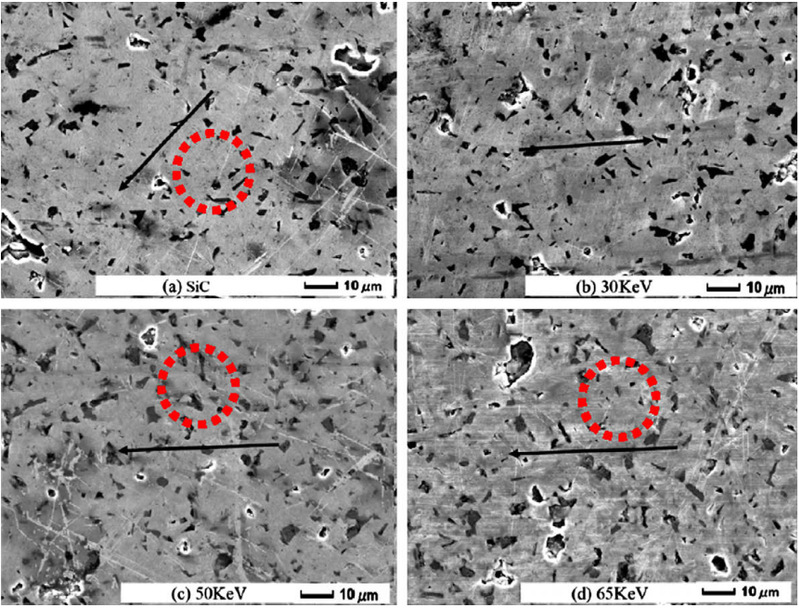Abstract:Nitrogen ions were implanted into silicon carbide ceramics (N+-implanted SiC) at different ions energies. The surface chemical bonding structure of N+-implanted SiC ceramics were investigated by using X-ray photoelectron spectroscopy (XPS). The hardness of N+-implanted SiC ceramics was measured using nano-indenter, and the friction and wear properties of the N+-implanted SiC/SiC tribopairs were studied using ball-on-disk type tribo-meter in water lubrication. The wear tracks were observed using non-contact surface profilometer and scanning electron microscope (SEM). The results showed that the surface roughness of N+-implanted SiC ceramic was higher than that of SiC ceramic, and some chemical bonds such as Si–N, C–C, Cdouble bondN and C–N bonds were formed in N+-implanted layer besides Si–C bonds. In comparison of SiC ceramic’s hardness, the hardness of N+-implanted SiC ceramics at 30 and 50 keV was higher while that at 65 keV was lower. Under water lubrication, the friction coefficient and the specific wear rates for the N+-implanted SiC/SiC tribopairs were all lower than those of the SiC/SiC tribopairs, and displayed the lowest values at 50 keV. According to XPS analysis, it was concluded that the high wear resistance and low friction coefficient for the N+-implanted SiC/SiC tribopairs were attributed to the formation of carbon rich composite on the surface of N+-implanted SiC ceramics.

全文下载: Influence of nitrogen ion implantation energies on surface chemical bonding structure and mechanical properties of nitrogen-implanted silicon carbide ceramics.pdf
Influence of nitrogen ion implantation energies on surface chemical bonding structure and mechanical properties of nitrogen-implanted silicon carbide ceramics.pdf
